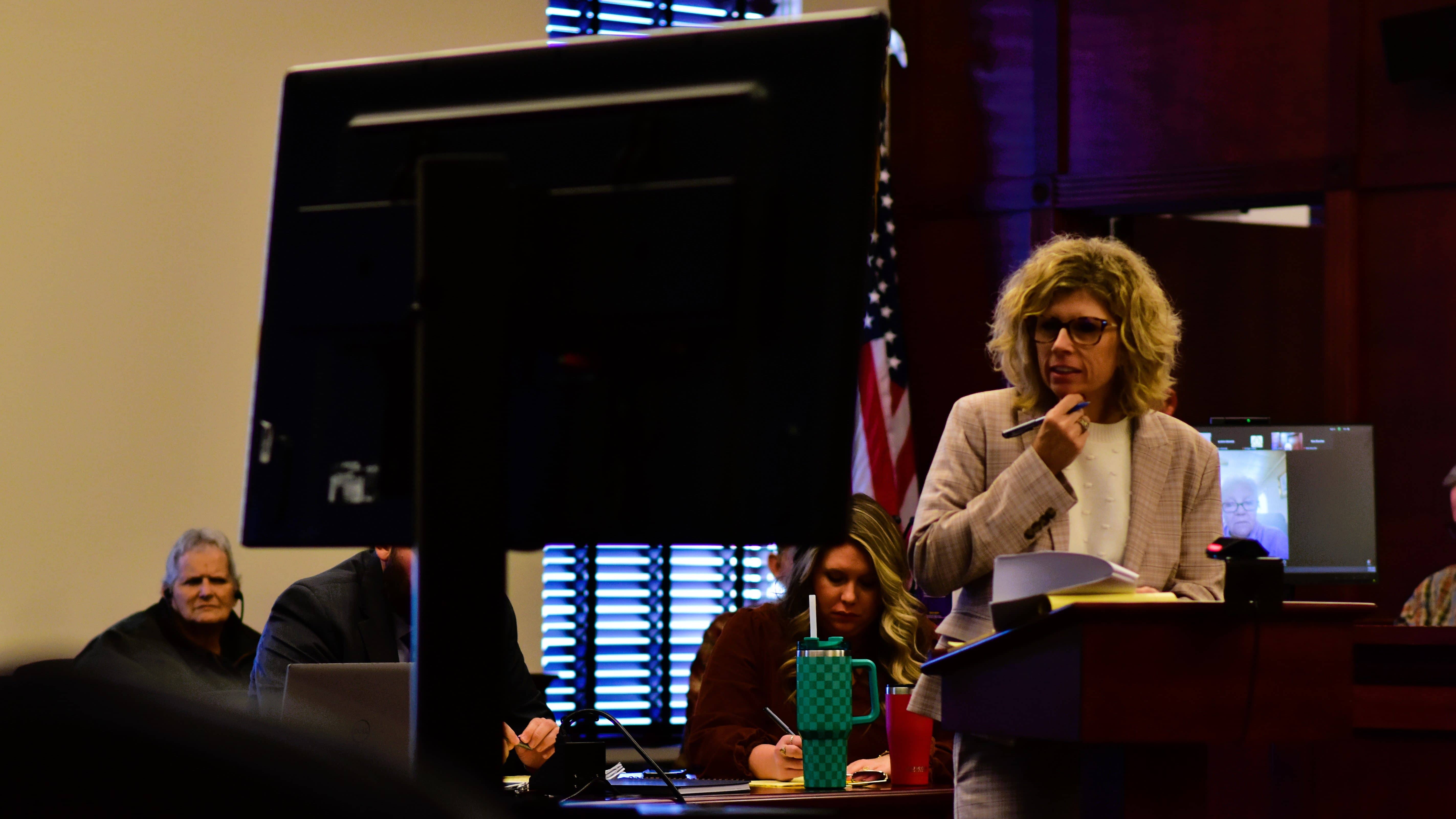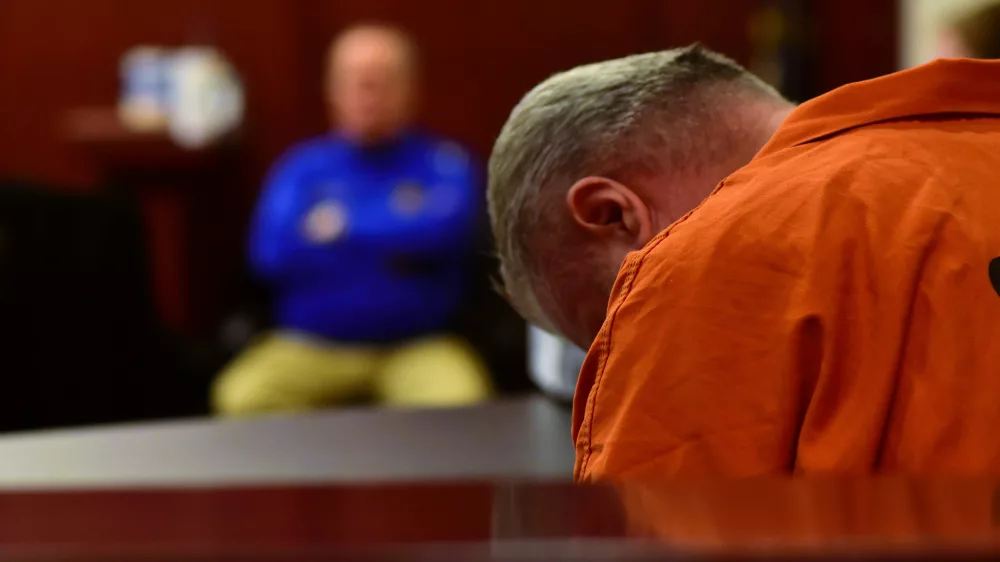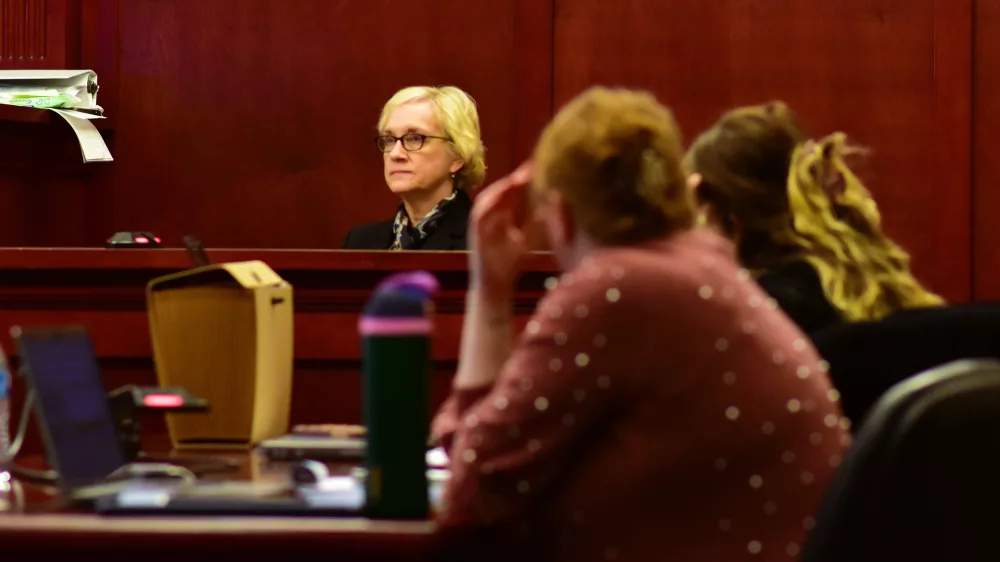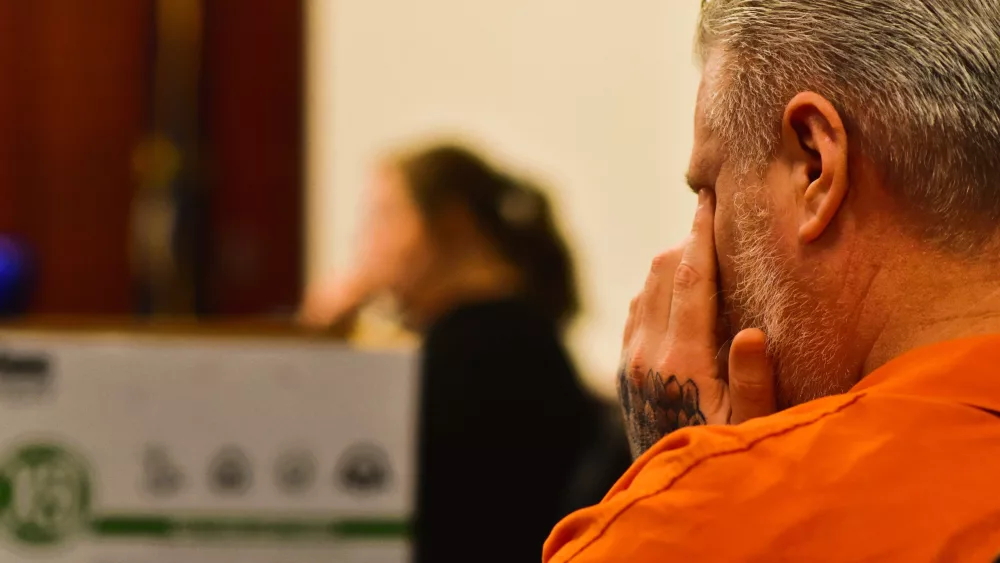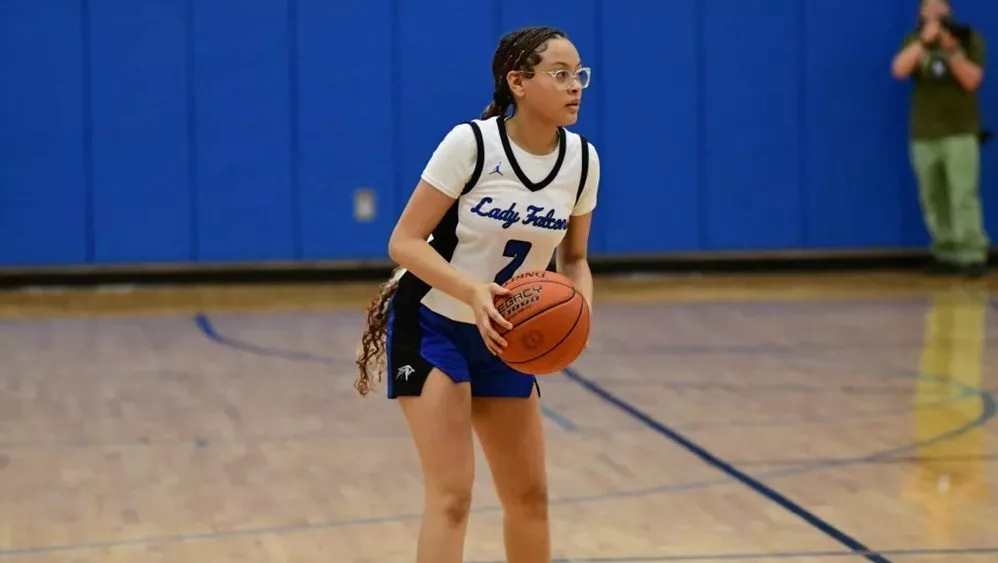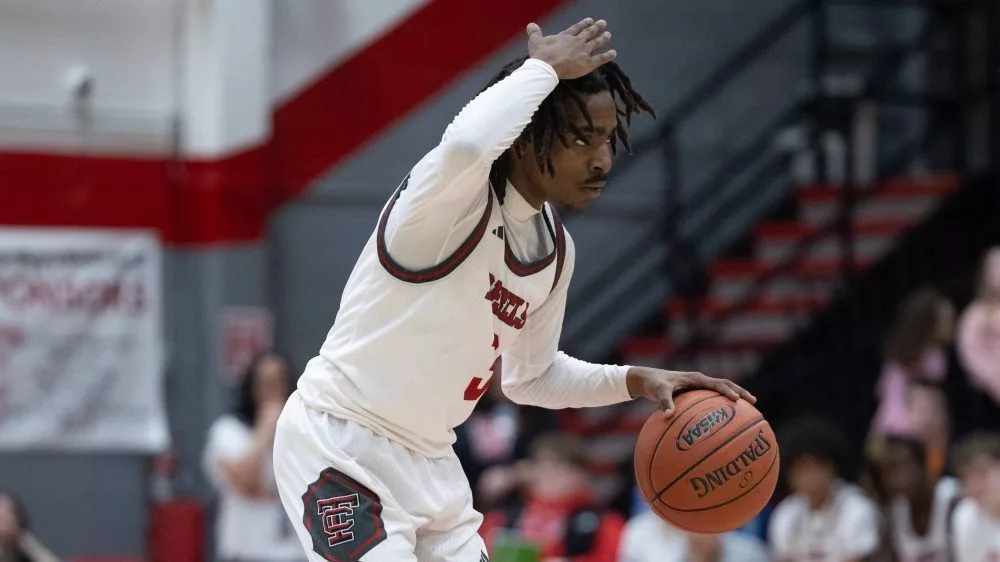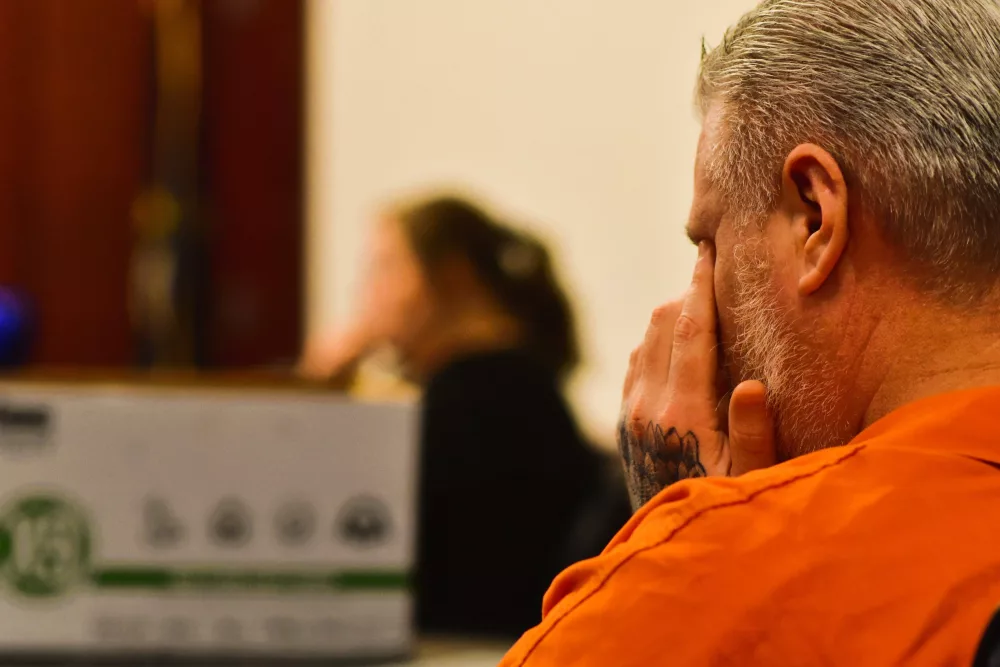
For more than six hours Friday morning and afternoon, officials conducted a deliberate — and sometimes difficult — serious mental illness hearing for Jonathan McCoy, one of three implicated in the 2020 murder of Thelma Ileen Barnett, and the arson of her Will Jackson Road home.
One goal for his defense team of Wesley Boyarski, Christy Hiance and Rick Lawniczak, is for McCoy to not face the death penalty — should he be convicted in the coming February trial.
It’s worth noting that in 2022, the Kentucky House and Senate easily shoveled through House Bill 269. Later signed by Governor Andy Beshear, the legislation prohibits the death penalty for defendants diagnosed with any of four specific mental health disorders and their active symptoms, including: schizophrenia, schizoaffective disorder, delusional disorder, and/or bipolar disorder.
In order to paint a picture of McCoy’s mental health and timeline over his last 46-plus years, Hiance and Boyarski brought forth lengthy testimony from his mother, Theresa Hoover, now of Pennsylvania, and Dr. Bernice Marcopulos — a heavily-vetted psychologist who not only is an educator at James Madison University, but specializes in criminal forensic neuropsychology, dementia, cognition in schizophrenia, and the effects of education on neurocognitive testing.
Hoover confirmed that her son, McCoy, was one of several family members who bore witness to the March 31, 1982, suicide of fraternal grandfather John Thomas McCoy Sr., who used a shotgun to end his life.
Hoover then confirmed that one year later, McCoy’s father, Lonnie Ray — who tried to resuscitate his father — told Jonathan he was going squirrel hunting, and that he couldn’t come this time — before ending his own life in the woods of Trigg County.
Mood swings, major behavioral changes and suicidal ideations, Hoover added, weren’t uncommon in the McCoy family — particularly the men — and she remembered an active Jonathan who often dealt with attention deficit issues, irritability, insomnia, and sometimes completely disassociated himself from others in his youth.
Hoover told Commonwealth’s Attorney Carrie Ovey-Wiggins that McCoy was mentally hospitalized multiple times in his childhood, and at one point was working through nine different medications to try and stabilize his behavior.
Then, in 1994, McCoy was a 16-year-old Marshall Countian when he was charged with two counts of kidnapping, one count of assault fourth degree and two counts theft by unlawful taking. Court documents show that, at the time, 3-year-old witness Brittany McCoy heard a thumping noise in her mother’s bedroom, with her mother — Jonathan’s aunt — yelling and crying.
The toddler saw her mother’s hands tied behind her back with an extension cord, and Jonathan forced the trio drive to Illinois. During a stop at an undisclosed McDonald’s, the mother called out to police — leading to an arrest. McCoy pleaded guilty to all counts, and was sentenced to 25 years as a youthful offender.
It’s here, Dr. Marcopulos said, where upon his 2019 release, McCoy tried methamphetamine for the first time — which she noted could easily magnify the highs and lows associated with Bipolar II disorder, a form of serious mental illness characterized by mood swings varying between hypomania and depression.
Unlike Bipolar I disorder, however, she said the peaks and valleys aren’t nearly as manic, and after reviewing all of his records — accompanied with nearly 10 hours of interviews with him, his mother, his ex-wife Amanda Mitchell and his grandmother, Barbara Holloway — Dr. Marcopulos said McCoy was a clear case of bipolarism.
Dr. Marcopulos confirmed that multiple state, and prison, assessments held similar notions of McCoy. She said he was suspected of being bipolar with ADHD and depression while in middle school in 1991, and in 2010 was diagnosed as depressed with severe psychosis. In fact, between the ages of 13 and 32, Dr. Marcopulos said Kentucky’s doctors, as well as the Department of Corrections, referred to McCoy’s declining mental health no less than 14 times.
His medications during that time, she added, involved a lot of polypharmacy — or taking five or more medicines a day — and that he was often prescribed anti-psychotic medications, mood stabilizers and anti-depressants, some of which aren’t typical for uni-polar depression.
Dr. Marcopulos also noted that there was documented, and suspected, sexual abuse of a young McCoy by a stepfather — a case that would have been investigated by former Trigg County Sheriff Randy Clark — and that the role of trauma and bipolarism can be correlative.
Boyarski even read a letter written years ago by Hoover, one in the possession of Western State Hospital, detailing the thoughts on her own suicide.
Throughout his life, Dr. Marcopulos said McCoy had made multiple contacts with mental health professionals and had received multiple diagnoses, but on the day of the crime, was not on any medications, and is currently not on them now.
Furthermore, she said McCoy had suicidal ideations leading up to, and after, the September 16, 2020, murder of Barnett. He sent several text messages to friends and family, some of them encouraging him to go through with it.
In the afternoon, Ovey-Wiggins turned her cross examination to Dr. Marcopulos, before bringing forth her own witness: Dr. Eric Lesch of the Kentucky Correctional Psychiatric Center. His analysis of McCoy was reportedly very similar to hers, but instead diagnosed him with major depressive disorder — and not bipolar.
Circuit Judge Jamus Redd also confirmed that he has denied the defense’s motion seeking a change of venue, but did note that if a jury cannot be sat in an appropriate, timely manner, he may have to revisit that decision.
All parties are expected to reconvene Friday, January 24, for further discussion.
FULL HEARING:
